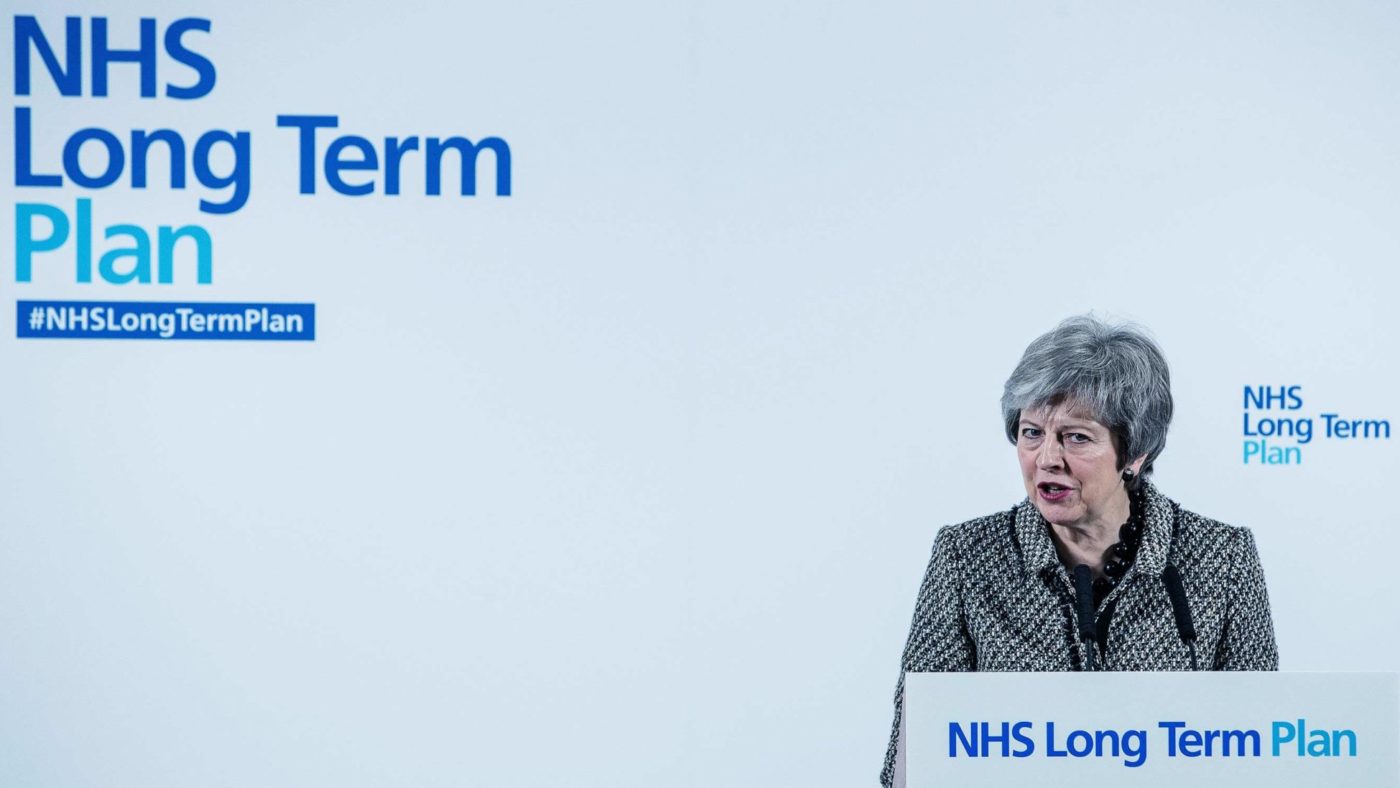The publication of NHS England’s Long-Term Plan for the NHS sets out a 10-year strategy to move the health service forward.
The plan sets out a vision for a health service with a new focus on prevention, personal responsibility, and promoting good health, as well as plans to promote social prescribing as a way to provide more personalised care and a commitment to 24-hour access to mental health support.
The focus on digital technology as a way to help spot and prevent serious illness and improve efficiency is particularly welcome, and builds upon the recommendations of ‘Powerful Patients, Paperless Systems’ by Alan Mak MP. As the world’s largest purchaser of fax machines, the NHS can only improve when it comes to the use of 21st century technologies that can improve the patient experience.
But no amount of long-term planning or increased funding agreements will improve NHS services sufficiently unless we also look at the hard-wiring, what goes on underneath the headline announcements. We need to shift the conversation from focusing on how much money goes in to the NHS, to looking at what outcomes are delivered.
Analysis published last year by the Centre for Policy Studies highlighted the importance of a productive NHS – a health service which spends money efficiently and delivers the best possible service for patients. If productivity growth matches the five most productive years on record, the CPS calculated there would be a 73 per cent increase in overall NHS output.
The improvement in efficiency that would be delivered under the more improved scenario would be the equivalent to:
- 219,000 more nurses on our wards
- 5.5 million more cancer treatments
- 74,000 hip replacement procedures
By contrast, if the NHS matched its least productive years, output would only grow by 20%. Compared with the high productivity scenario, this would mean the equivalent of:
- 159,000 fewer nurses on our wards
- 4 million fewer cancer treatments
- 58,000 hip replacements
Figures like these make it clear to everyone that NHS efficiency isn’t just a matter of small changes, eliminating wasteful spending across the health service frees up money that can be spent on visible improvements the public will notice – through improved treatments and shorter waiting times.
Government announcements mean NHS funding levels have already been guaranteed for the next five years, making it even more important that those funds are spent efficiently, especially given that CPS research also shows that increased NHS funding tends to be linked to lower productivity.
The Labour Party have – predictably – criticised the plan, as has Unison, whose Head of Health said that staffing shortages would undermine any plans the NHS tried to implement.
Despite claims from Labour and others that NHS workers have faced a pay freeze over recent years – contributing to workers leaving the healthcare sector for roles elsewhere – last year’s report from Dr Paul Goldsmith, ‘An NHS Bonus‘, shows how the NHS pay structure means a majority of staff receive an annual pay increase almost automatically, owing to progression along a pay spine. This, combined with the headline 1 per cent pay increase, means the average pay rise for an NHS worker between 2012 and 2017 was somewhere between 2.5 and 3 per cent per year.
The problem actually is that the NHS, almost uniquely for a large employer in the Western hemisphere, has a very limited amount of performance-related pay. To perform properly, staff need to be motivated and incentivised with salary structures that promote quality care and increased productivity, but the NHS system leaves managers with no room to incentivise meeting objectives or to reward staff who choose to work in under-serviced specialisms or move to regions of the country that are struggling to recruit.
The long-term plan also does nothing to address the thorny issue of NHS medical liabilities, which were estimated to stand at over £65bn in 2017.
Setting out a long-term plan for the NHS is welcome, but without a renewed focus on how our money is spent, as well as where, the health service will struggle to deliver the improvements we need in future.


